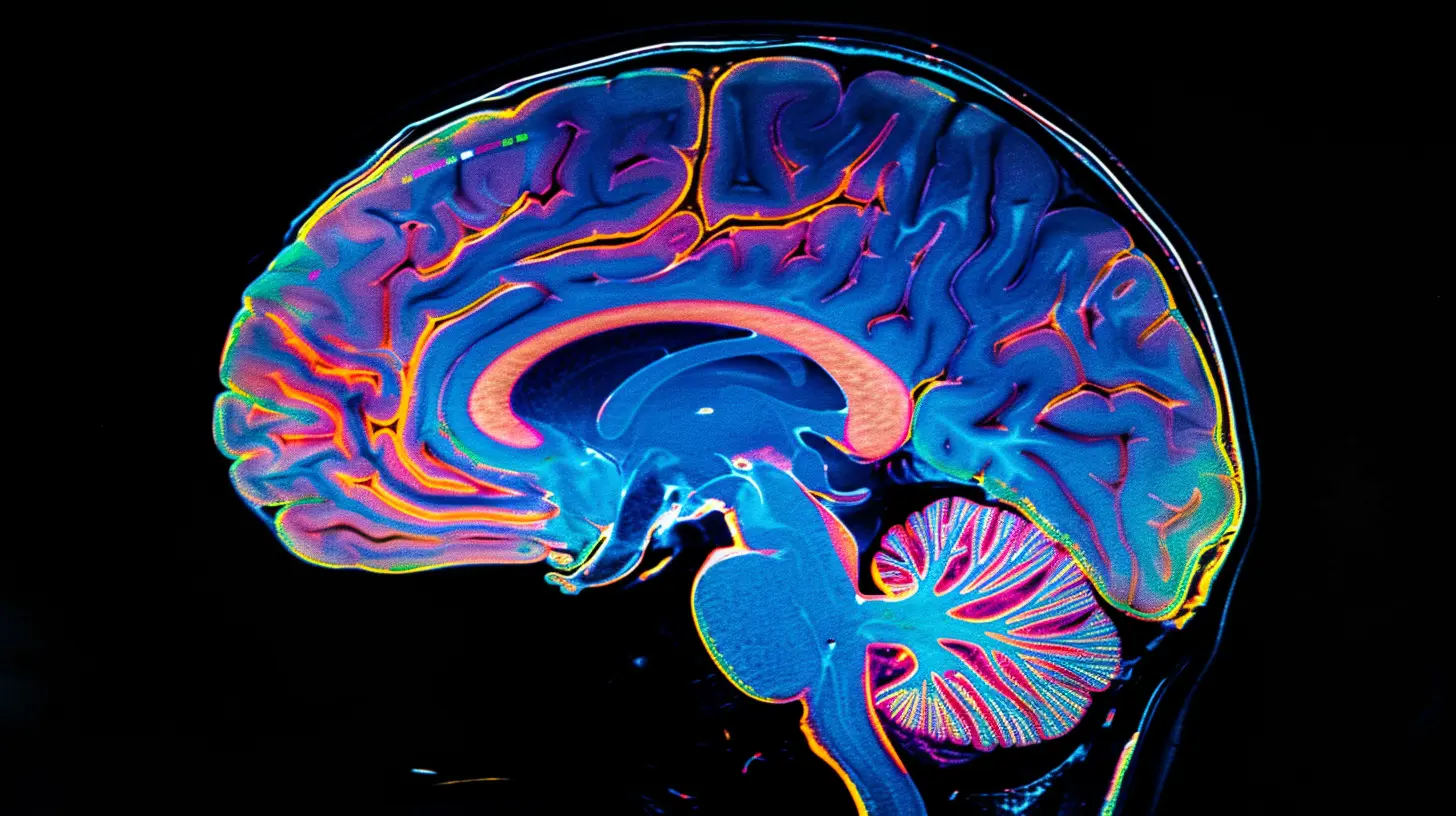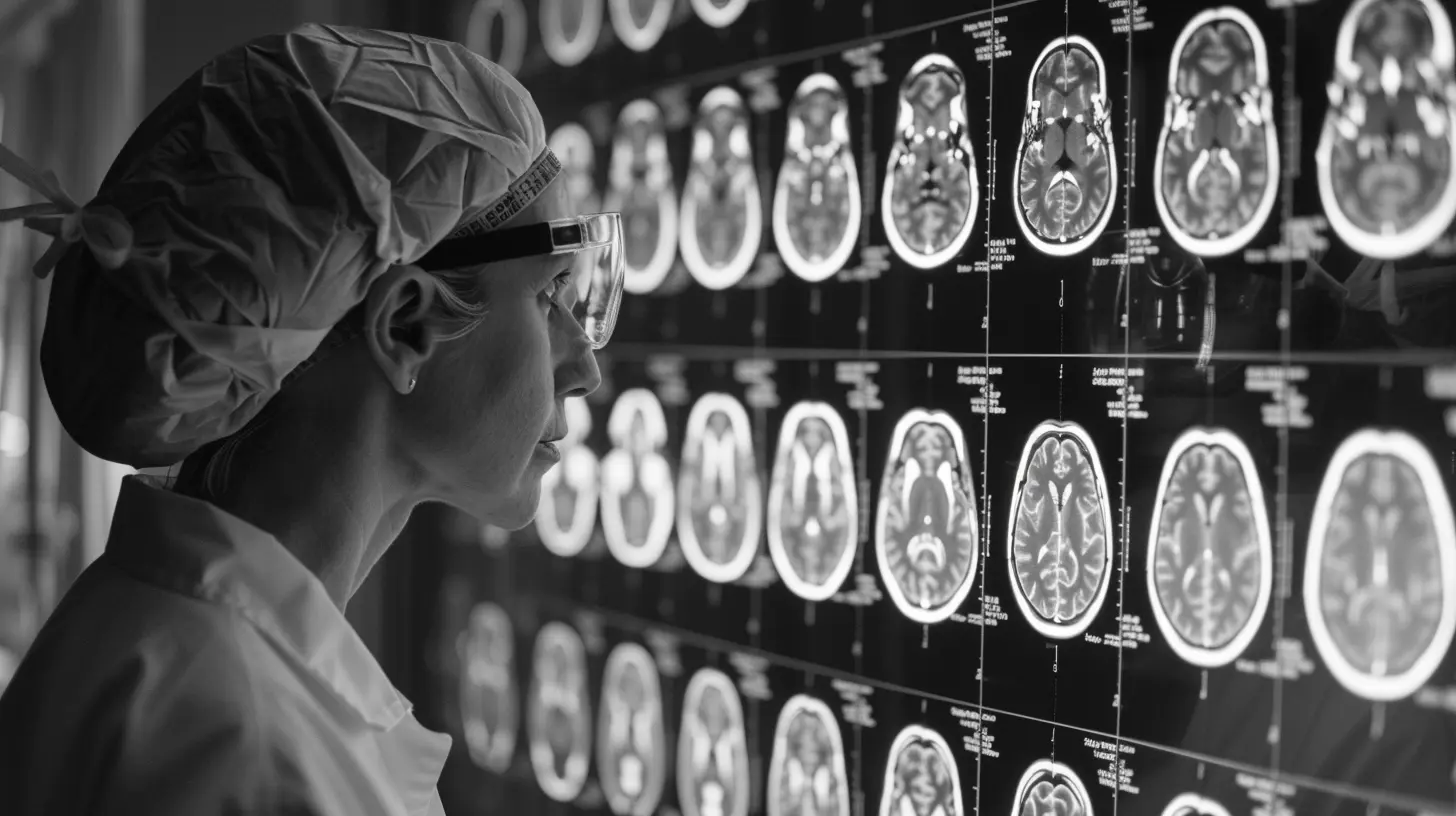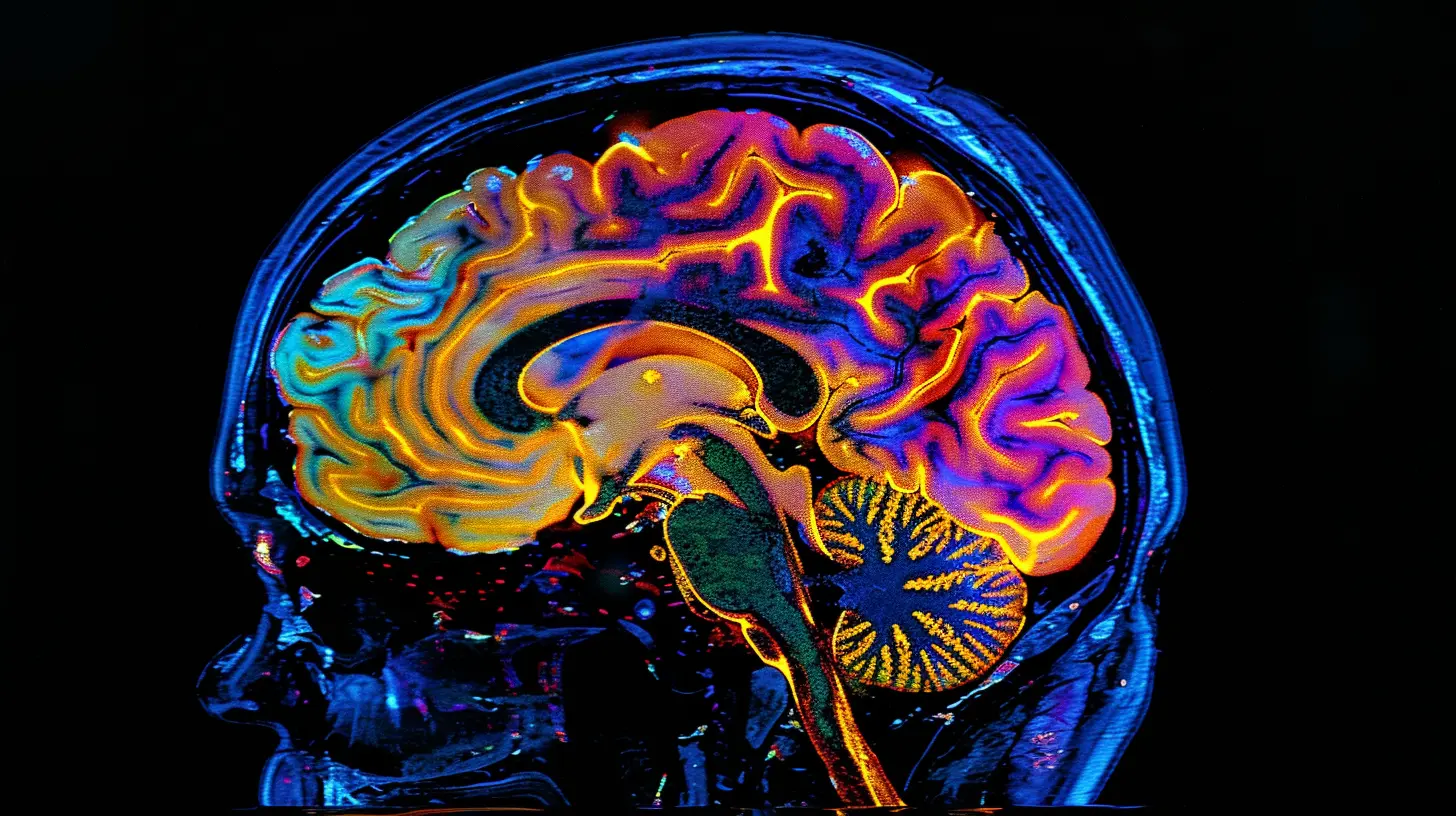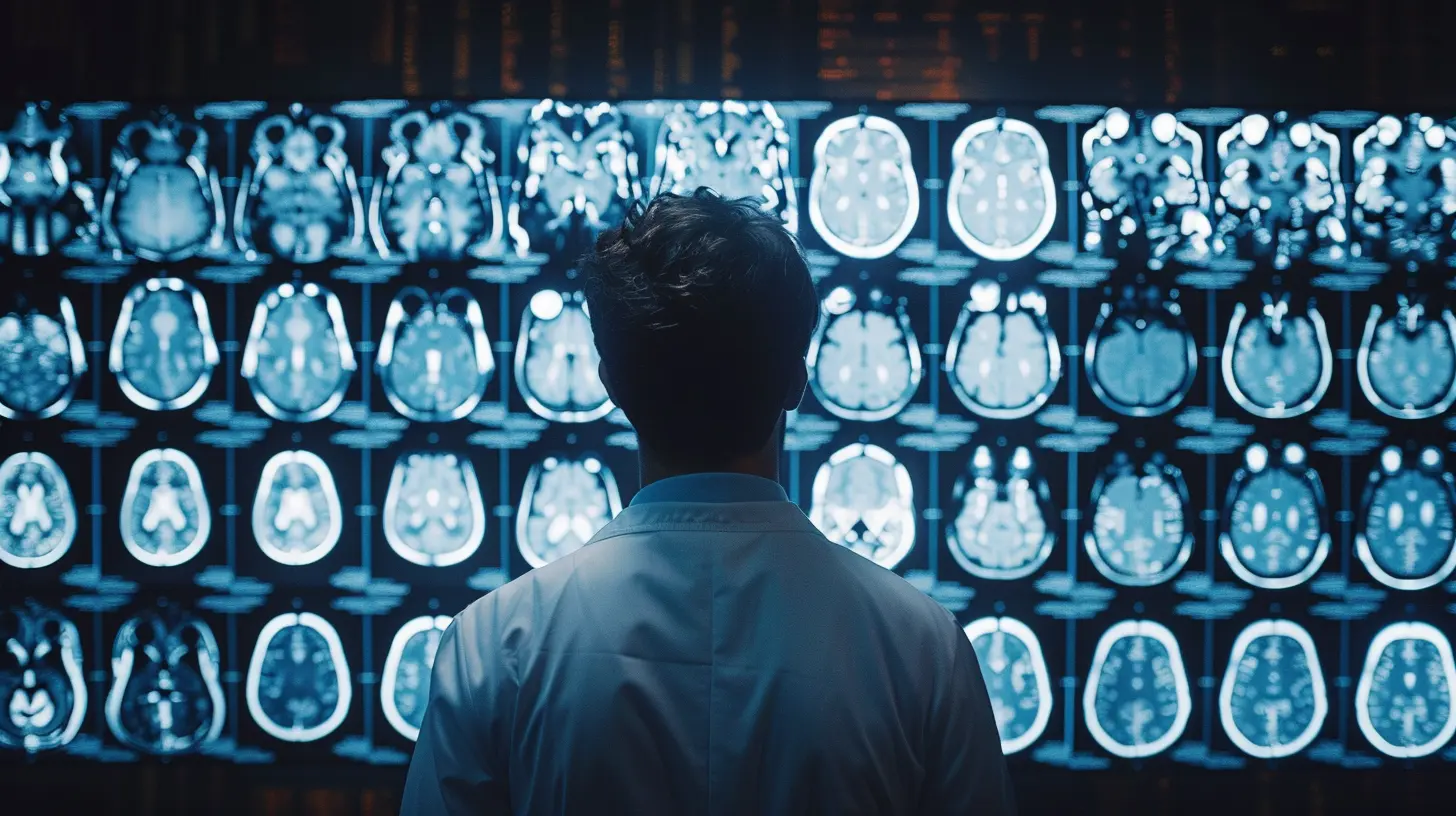How Brain Scans are Revolutionizing Mental Health Diagnosis
7 February 2025
Mental health has long been a mysterious frontier, riddled with complexities that make it difficult to diagnose and treat. For many years, mental health diagnoses have relied heavily on subjective assessments—questionnaires, interviews, and self-reported symptoms. But as technology advances, something remarkable is happening. Brain scans are stepping into the spotlight, offering new ways to understand and diagnose mental health conditions with more precision than ever before.
It's like peeking under the hood of a car to see exactly what’s going wrong, instead of relying on the driver’s best guess about that strange noise coming from the engine. So, how exactly are brain scans changing the game? Let’s dive in.

The Traditional Approach to Mental Health Diagnosis
Before we get into the brain scans and their impact, it's important to understand how mental health diagnoses have traditionally worked. Most mental health professionals use tools like the DSM-5 (Diagnostic and Statistical Manual of Mental Disorders) to identify conditions based on a person’s symptoms. While this method has been effective to some extent, it comes with its own set of challenges.Take depression, for example. Two people could both be diagnosed with depression but exhibit completely different symptoms. One might feel persistently sad, while the other could be irritable and unable to sleep. The lack of physical tests like blood work or imaging means doctors are often relying on the patient’s ability to describe their feelings—a process that’s far from foolproof.
That’s where brain scans come in. They offer a window into the brain’s activity, structure, and function, allowing for an unprecedented level of accuracy in diagnosis.

Types of Brain Scans Used in Mental Health Diagnosis
There are several different types of brain scans, each offering its own unique insights into how the brain works. Let’s break down the main players:1. Magnetic Resonance Imaging (MRI)
MRI is like the king of all brain scans. It provides high-resolution images of both the brain's structure and, in some cases, its function. Functional MRI (fMRI) is particularly interesting for mental health because it shows changes in brain activity by measuring blood flow. The idea is simple: areas of the brain that are more active require more oxygen, and this is reflected in the blood flow.For instance, an fMRI scan could show heightened activity in the amygdala (the part of the brain responsible for processing emotions) in someone with anxiety. That’s a tangible, observable difference that can aid in diagnosis and even track the effectiveness of treatment.
2. Positron Emission Tomography (PET)
If MRI is the king, then PET scans are the unsung hero. While MRI focuses on structure and blood flow, PET scans look at brain metabolism. By injecting a small amount of radioactive material into the bloodstream, PET scans can show how the brain is using glucose (its primary form of energy). Why does this matter? Because abnormalities in glucose metabolism are linked to several mental health disorders.For example, people with schizophrenia show reduced glucose metabolism in certain areas of the brain. Being able to see that in real-time makes PET scans a powerful tool for diagnosing complex conditions.
3. Electroencephalography (EEG)
Compared to MRI and PET scans, EEG is like the scrappy underdog. It doesn’t offer images of the brain, but it tracks electrical activity using electrodes placed on the scalp. EEG is particularly useful for diagnosing conditions like bipolar disorder or ADHD, where abnormal brain wave patterns are often present.Think of EEG as listening to the brain’s "radio stations." Different stations (or brain wave patterns) correlate with various mental states, like attention, relaxation, or agitation. If something’s off, EEG can help pinpoint the issue.
4. Single-Photon Emission Computed Tomography (SPECT)
SPECT is somewhat similar to PET in that it measures blood flow and brain activity. However, SPECT is less expensive and more accessible, making it a favorite in certain clinical settings. It’s often used to diagnose conditions like traumatic brain injury (TBI), which has significant overlap with mental health symptoms such as depression or anxiety.
How Brain Scans Are Already Making an Impact
Okay, now that we’ve covered the types of brain scans, let’s talk about how they’re actually being used in mental health care today. These technologies are already proving invaluable in several ways.1. Objective Diagnoses
One of the biggest advantages of brain scans is their ability to provide objective data. Instead of relying solely on subjective reports ("I feel anxious" or "I can’t focus"), doctors can now look directly at what’s happening in the brain. For example, someone with depression might show decreased activity in the prefrontal cortex, the part of the brain responsible for decision-making and emotional regulation. That’s objective, measurable proof that something is off.2. Customized Treatments
Brain scans are also opening the door to more personalized treatments. Right now, many mental health treatments follow a "one-size-fits-all" approach, but as you can imagine, that doesn’t always work. By understanding the unique brain patterns associated with each individual’s condition, doctors can tailor treatments more effectively.For example, someone with PTSD might benefit more from cognitive-behavioral therapy (CBT) if their brain scans show overactivity in the amygdala. Meanwhile, someone else with a different brain pattern might respond better to medication or even newer treatments like transcranial magnetic stimulation (TMS).
3. Early Detection and Prevention
Brain scans could also be game-changers for early detection. Imagine being able to identify someone at risk for Alzheimer’s, schizophrenia, or bipolar disorder before the condition has fully manifested. By catching these issues early, doctors can intervene sooner and potentially prevent the full-blown condition from developing.4. Tracking Treatment Progress
Finally, brain scans offer a way to track how well treatments are working. Let’s say someone starts taking medication for depression. Over time, an fMRI could show increased activity in the prefrontal cortex, indicating that the treatment is helping. This allows doctors to adjust treatment plans in real-time, instead of waiting weeks or months to see if symptoms improve.
Challenges and Ethical Considerations
Of course, brain scans aren’t without their challenges. For one, they’re expensive. Not everyone has access to these advanced technologies, and insurance doesn’t always cover them. Plus, there’s the issue of interpretation. Just because someone’s brain scan looks a certain way doesn’t always mean they have a particular mental health condition. We’re still learning how to interpret these images accurately.There are also ethical concerns. Should we be using brain scans to predict someone’s mental health future? Could this lead to discrimination or stigma if, for example, someone is deemed "at risk" for developing a condition later in life? These are important questions that need to be addressed as brain scans become more integrated into mental health care.
The Future of Mental Health Diagnosis: A New Paradigm
So, where do we go from here? It’s clear that brain scans are revolutionizing mental health diagnosis, but we’re just scratching the surface. As technology improves, we can expect even more accurate and detailed scans, potentially offering insights we can’t even imagine today.Beyond just diagnosing mental health conditions, brain scans could help us understand the very nature of mental illness. Why do some people develop anxiety while others don’t? What role do genetics and environment play? Brain scans might hold the key to unlocking these mysteries, leading to treatments that are more effective than anything we’ve seen before.
It’s an exciting time to be in the field of mental health. The brain, once a black box of mystery, is starting to reveal its secrets.
Conclusion
Brain scans are undeniably revolutionizing mental health diagnosis by providing objective, measurable data that can lead to more accurate diagnoses, personalized treatments, and potentially even early intervention strategies. While challenges remain—such as accessibility and ethical concerns—the future looks bright. As we continue to learn more about the brain and how it functions, we’re moving toward a new era in mental health care, one that is more precise, effective, and humane.The next time you hear about someone getting a brain scan to diagnose a mental health condition, think of it like upgrading from guessing the weather based on how it "feels" outside to using a radar system. The data is more precise, and the results are far more reliable.
all images in this post were generated using AI tools
Category:
NeuroscienceAuthor:

Janet Conrad
Discussion
rate this article
8 comments
McCoy
What an exciting breakthrough! Brain scans are opening new doors in mental health diagnosis, paving the way for more precise and personalized treatment options. This innovation brings hope and joy to countless individuals seeking understanding and healing!
March 18, 2025 at 4:54 PM

Janet Conrad
Thank you for your enthusiastic response! We're excited about the potential of brain scans to transform mental health diagnosis and treatment.
Caleb Russell
Finally, a way to peek inside our brains without needing a magic eight ball! If brain scans can diagnose our mental health, let's hope they come with a 'happiness filter' too. Imagine getting a prescription for extra laughter and a side of puppy videos—now that’s a treatment plan I can get behind!
March 10, 2025 at 5:13 PM

Janet Conrad
Thanks for your creative take! A "happiness filter" would be an amazing addition to mental health care—laughter and puppy videos certainly have therapeutic value!
Flynn McElveen
Brain scans for mental health? Finally, a way to see what's cooking in there! Just imagine the therapist's reaction: 'Well, your brain is definitely more scrambled than a Sunday breakfast. Let's fix that!' Who knew it was all just brunch chaos?
March 1, 2025 at 4:45 PM

Janet Conrad
Thanks for the humorous take! Brain scans indeed offer fascinating insights, helping us better understand and address mental health issues. Let's keep unraveling that brunch chaos!
Beth McLaurin
This article beautifully highlights the transformative potential of brain scans in mental health diagnosis. It's encouraging to see how technology can enhance our understanding of the mind, offering more personalized approaches to treatment. Such advancements bring hope for many seeking clarity and support in their mental health journeys.
February 15, 2025 at 5:56 AM

Janet Conrad
Thank you for your thoughtful comment! I'm glad you found the article highlights the important role of brain scans in personalizing mental health treatment. It's indeed an exciting time for advancements in this field.
Zanthe Walker
Brain scans are a game changer in mental health diagnosis, providing unprecedented insights into neurological patterns. This revolutionary approach enhances accuracy, enabling tailored treatments that significantly improve patient outcomes. The future is here!
February 14, 2025 at 5:49 PM

Janet Conrad
Thank you for your insightful comment! Indeed, brain scans are transforming mental health diagnosis and treatment, paving the way for more personalized and effective care.
Sienna McGhee
Brain scans are transforming mental health diagnosis by providing objective insights into brain function. This innovative approach enhances accuracy, reduces stigma, and empowers both clinicians and patients, paving the way for personalized treatment strategies and improved outcomes.
February 13, 2025 at 3:22 PM

Janet Conrad
Thank you for your insightful comment! It's exciting to see how brain scans are shaping the future of mental health diagnosis and treatment. Your points about accuracy and empowerment are crucial in reducing stigma and improving patient outcomes.
Ivan Lane
This article highlights a groundbreaking advancement in mental health. Understanding our brains can foster compassion and lead to more effective support for those in need.
February 10, 2025 at 4:25 PM

Janet Conrad
Thank you for your insightful comment! I'm glad you found the article highlights helpful in emphasizing the importance of understanding brain health for better support and compassion in mental health care.
Zanthe Chavez
While brain scans offer promising insights into mental health diagnosis, reliance on them risks oversimplifying complex human experiences. True understanding requires integrating neurobiological data with psychological, social, and environmental factors to achieve holistic and effective mental health treatment.
February 9, 2025 at 3:39 PM

Janet Conrad
Thank you for your insightful comment! You're absolutely right; while brain scans provide valuable data, a comprehensive approach that considers psychological and social factors is essential for effective mental health treatment.
MORE POSTS

Mastering Mental Toughness: Strategies for Resilience in Everyday Life

How to Approach Difficult Conversations with Your Partner

Understanding the Freeze Response in Trauma Survivors

Recognizing the Signs of Nonverbal Learning Disabilities

Navigating Conflict During Life Transitions

How to Stay Mentally Tough When Faced with Uncertainty